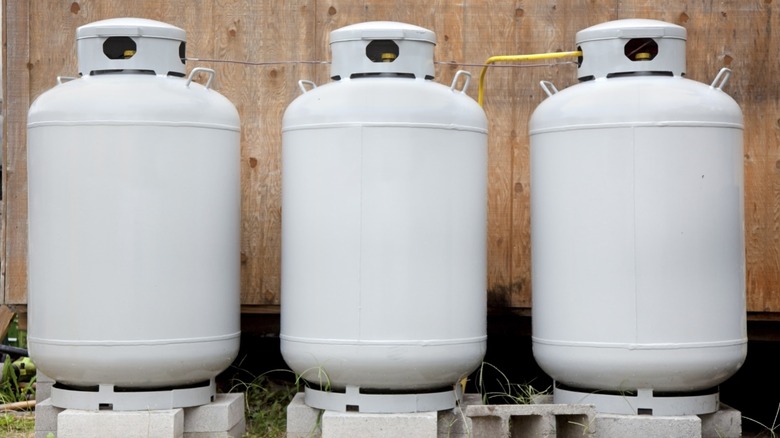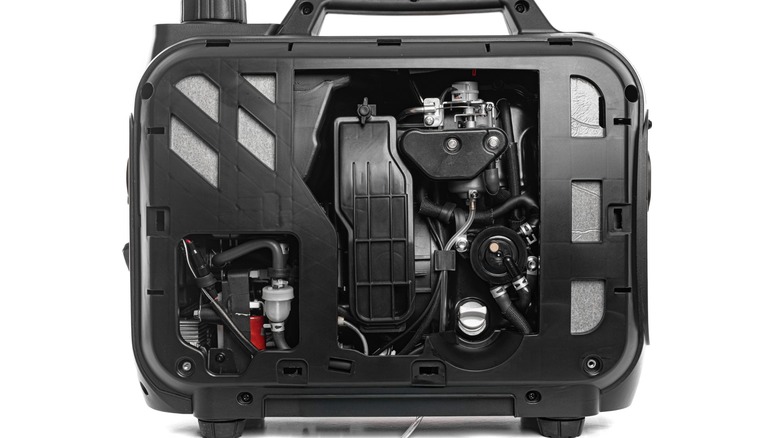Propane Generator Runtime: How Long Should One Last On A 20-Pound Tank?
There are multiple ways you can back up the power in your home: You could go with a solar-battery setup, a diesel/gasoline generator, or a propane generator. While all of these have their various pros and cons, the propane generator offers something the others don't: a reliable fuel source. Unlike diesel and gasoline, propane can sit in a tank for years and still be ready when the power goes out. However, the problem is that propane doesn't have as much fuel density as diesel or even gasoline, so something as small as a 20-pound tank won't last as long as you might think.
A 20-pound tank is only about 4.6 gallons of liquid propane, assuming you follow the 80% fill rule. Generac's 7.5 kW generator uses about 0.87 gallons per hour at 50% load and 1.42 gallons per hour on full load, meaning that it could run about 5.3 hours on a 20-pound tank at half load, and about 3.2 hours at full load. That might be enough for a short outage, but it won't sustain whole-house needs more a day. However, if you use a smaller generator or inverter for camping or tailgating, a 20-pound tank could be enough. That's why size and use-case are an important consideration when choosing the right generator for your home.
A small inverter generator in the 2,000-4,500 watts class is perfect for camping, because at light load (25% to 50%), a 20-pound tank can usually run them for 10 to 20 hours. For example, the Westinghouse iGen4500DF can stretch close to 18 to 22 hours at 25% load, while a Champion 3500-watt dual-fuel gets around 10 to 11 hours at half load.
How to calculate propane generator runtime
You can calculate a generator's run time by dividing its tank size by the fuel consumption rate. You should be able to find this information written on the generator or its manual. Keep in mind that the fuel consumption rate will depend on how much load it's bearing at the time. Once a generator starts running at full capacity, propane burns a lot quicker: If you're powering fridges, lights, ACs, and whatever else you need to survive a power outage, then expect varying run times. The harder the generator works, the faster it consumes fuel.
For instance, many homeowners use a 3,000-watt unit for basic backup power. It is enough to run a fridge, a few lights, maybe a TV or a laptop. When running close to full load, most of these generators will burn through a 20-pound propane tank in roughly three hours. Some dual-fuel 3,000-class models advertise much longer runtimes under light load, which reinforces how big a gap full load makes.
Now, if you move up to a 5,000-watt generator, the burn rate gets faster. Westinghouse's iGen5000DF says up to 18 hours on a 20-pound tank, but again, that's under light load. Champion's 4,500-watt dual-fuel inverter generator claims 21 hours at light load for its 20-pound propane tank. However, once you demand full power, the quoted hours collapse. As such, for a 5,000-watt generator running at full sustained load, two hours per 20-pound tank is a reasonable ballpark.

